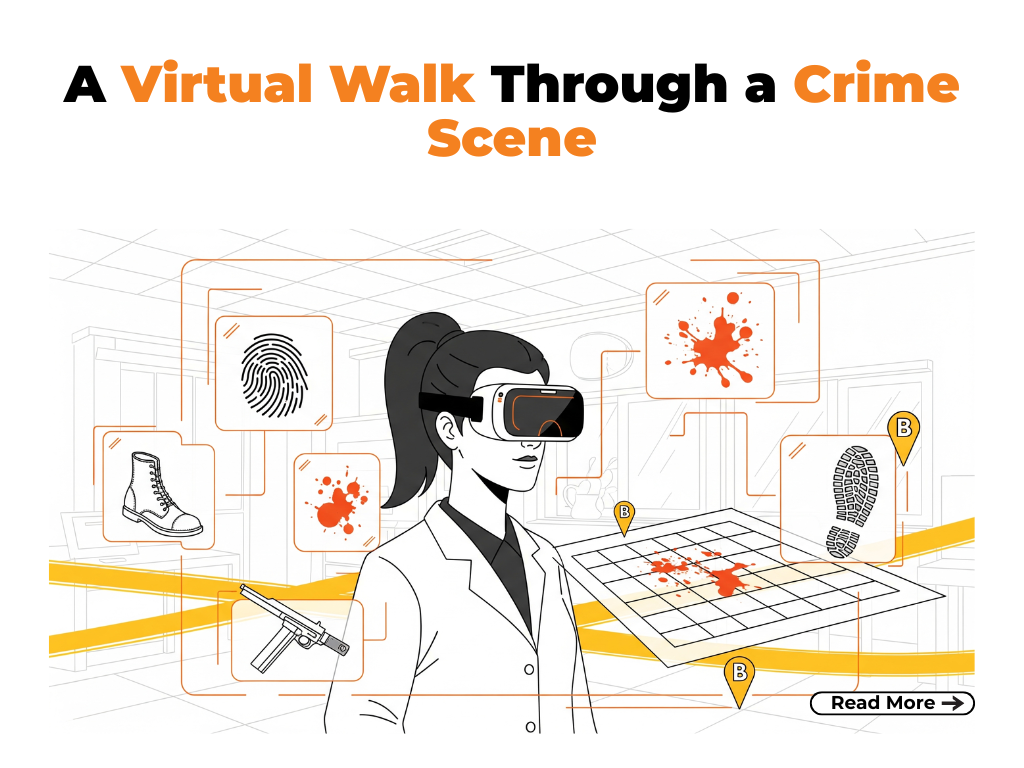As technology advances, the need for cybersecurity professionals has never been greater. But what is cyber security? It refers to the practice of protecting systems, networks, and data from cyber threats, ensuring the confidentiality, integrity, and availability of digital assets. With the rise in cyber threats, data breaches, and evolving hacking techniques, organizations are investing heavily in securing their infrastructure. As we move into 2025, building a career in cyber security presents vast opportunities, with professionals playing a crucial role in safeguarding businesses, governments, and individuals. The increasing reliance on digital platforms has led to a surge in career opportunities in cyber security, offering lucrative salaries and long-term job stability. This blog explores the latest cybersecurity career trends, expected salaries, and the industries seeking cybersecurity experts.
The Growing Importance of Cybersecurity
Cyber threats are becoming increasingly sophisticated, impacting businesses, governments, and individuals. High-profile cyberattacks on financial institutions, healthcare providers, and tech giants highlight the growing need for advanced security measures. With emerging technologies such as artificial intelligence (AI), cloud computing, and the Internet of Things (IoT), B.tech in cybersecurity professionals play a crucial role in ensuring data integrity and privacy.
Cybercrime is expected to cost the global economy trillions of dollars in the coming years. As cybercriminals develop more advanced techniques, organizations require skilled professionals to implement proactive security measures, conduct risk assessments, and respond effectively to incidents. Governments worldwide are enforcing stricter regulations, compelling businesses to adopt robust cybersecurity frameworks.
Top Cybersecurity Career Trends in 2025
- The Integration of AI and Automation in Cybersecurity
AI-driven security solutions are helping organizations detect and respond to threats in real time. Automation in cybersecurity reduces response times and enhances security measures, making AI expertise a valuable skill for cybersecurity professionals.
Machine learning and AI-powered security tools can predict vulnerabilities and automate threat detection, reducing human intervention. Cybersecurity professionals with expertise in AI-driven defense mechanisms will be at the forefront of securing digital infrastructure.
- Increasing Demand for Cloud Security Specialists
As businesses transition to cloud-based infrastructures, cloud security specialists are needed to protect sensitive data from breaches and unauthorized access. Certifications such as AWS Certified Security and Google Professional Cloud Security Engineer are highly valued.
Hybrid and multi-cloud environments are becoming standard, necessitating professionals who can implement cloud security policies, secure cloud applications, and ensure compliance with industry regulations. As cyber threats evolve, cloud security will remain a top priority for organizations worldwide.
- Adoption of Zero Trust Architecture
With the increasing risks of insider threats and unauthorized access, organizations are adopting Zero Trust security models. Professionals skilled in Zero Trust principles will be highly sought after in 2025.
Zero Trust frameworks require continuous identity verification, making cybersecurity professionals with expertise in access management, encryption, and multi-factor authentication highly valuable. Organizations are investing in Zero Trust security to reduce the risks of breaches and data leaks.
- Expansion of Cybersecurity Roles in Healthcare
The healthcare industry is experiencing a surge in cyber threats, making cybersecurity specialists essential for securing patient records and medical devices from attacks.
The digitization of medical records and the rise of telehealth services have made healthcare a prime target for cybercriminals. Protecting sensitive patient data, securing connected medical devices, and ensuring compliance with health regulations are key responsibilities of cybersecurity professionals in the healthcare sector.
- Increasing Demand for Regulatory Compliance Experts
Data protection laws are becoming stricter worldwide, increasing the demand for professionals who can ensure compliance with regulations such as GDPR, CCPA, and HIPAA.
With global cybersecurity regulations evolving, organizations need professionals who can develop and enforce policies that meet legal and industry-specific requirements. Compliance experts play a crucial role in ensuring organizations avoid penalties and maintain customer trust.
Salary Expectations for Cybersecurity Roles in 2025
Salaries for cybersecurity professionals vary based on experience, location, and job role. Here are some estimated salary ranges for top cybersecurity positions in 2025:
- Cybersecurity Analyst: $85,000 – $120,000
- Penetration Tester (Ethical Hacker): $90,000 – $140,000
- Cloud Security Engineer: $110,000 – $160,000
- Chief Information Security Officer (CISO): $180,000 – $300,000
- Incident Response Specialist: $95,000 – $135,000
- Security Architect: $120,000 – $180,000
The cybersecurity job market continues to expand, and professionals with certifications such as Certified Information Systems Security Professional (CISSP), Certified Ethical Hacker (CEH), and CompTIA Security+ have a competitive edge. Salaries are also influenced by geographical location, with cybersecurity professionals in major tech hubs earning higher compensation.
Industries Driving the Demand for Cybersecurity Experts
- Finance and Banking
Banks and financial institutions face constant cyber threats, making cybersecurity a critical investment area.
Financial institutions store vast amounts of sensitive customer data, making them a top target for cybercriminals. Cybersecurity professionals working in this industry develop encryption protocols, detect fraudulent activities, and implement security measures to prevent data breaches.
- Healthcare
With the rise in telemedicine and digital health records, protecting sensitive patient data is a top priority.
Healthcare providers must ensure the security of electronic health records (EHRs), medical devices, and patient communication channels. The demand for cybersecurity professionals in healthcare is expected to grow significantly.
- Government and Defense
Cybersecurity professionals in government agencies work to prevent cyber espionage and protect national security.
Governments are increasing investments in cybersecurity infrastructure to prevent attacks on critical systems, such as defense networks, election processes, and public utilities. Cybersecurity professionals in this sector focus on risk management, encryption, and intelligence analysis.
- Technology and IT Services
Tech companies prioritize cybersecurity to safeguard intellectual property and customer data.
As organizations develop new digital products, cybersecurity professionals play a crucial role in securing software applications, preventing cyber threats, and ensuring network security.
- Retail and E-Commerce
Online retailers require strong cybersecurity frameworks to protect transactions and customer information.
E-commerce businesses handle large volumes of online transactions, making them susceptible to cyberattacks. Cybersecurity professionals specializing in fraud prevention, data encryption, and secure payment processing are in high demand.
Future Outlook for Cybersecurity Careers
The demand for cybersecurity professionals is expected to grow significantly in the coming years. With increasing cyber threats and evolving digital landscapes, companies will continue to invest in top talent to secure their networks and data.
Cybersecurity threats are becoming more complex, requiring professionals to stay updated with the latest technologies and attack methods. The rise of AI-driven cyberattacks and the expansion of IoT devices create new challenges that cybersecurity experts must address. Continuous learning, obtaining industry certifications, and gaining hands-on experience will be essential for career growth in this field.
Key Takeaways:
- Cybersecurity careers are in high demand with lucrative salary prospects.
- AI, cloud security, and Zero Trust models are shaping cybersecurity trends in 2025.
- Regulatory compliance is driving the need for specialized professionals.
- Industries such as finance, healthcare, and government are the biggest employers of cybersecurity experts.
- Continuous learning and upskilling are critical for staying competitive in the cybersecurity job market.
Conclusion
With the growing reliance on digital infrastructure, cybersecurity professionals will remain indispensable in 2025 and beyond. Aspiring cybersecurity experts should focus on developing key skills, obtaining relevant certifications, and staying updated with industry trends to capitalize on the high demand and competitive salaries in this field.
The cybersecurity industry offers immense opportunities for growth and career advancement. As cyber threats evolve, the role of cybersecurity professionals will only become more crucial in safeguarding organizations and individuals from cyber risks.




![Career Paths After B.Sc. Information Technology [Lateral Entry] Career Paths after B.Sc. Information Technology [Lateral Entry]](https://www.lpu.in/blog/wp-content/uploads/2026/01/Career-Paths-after-B.Sc_.-Information-Technology-Lateral-Entry-218x150.png)









